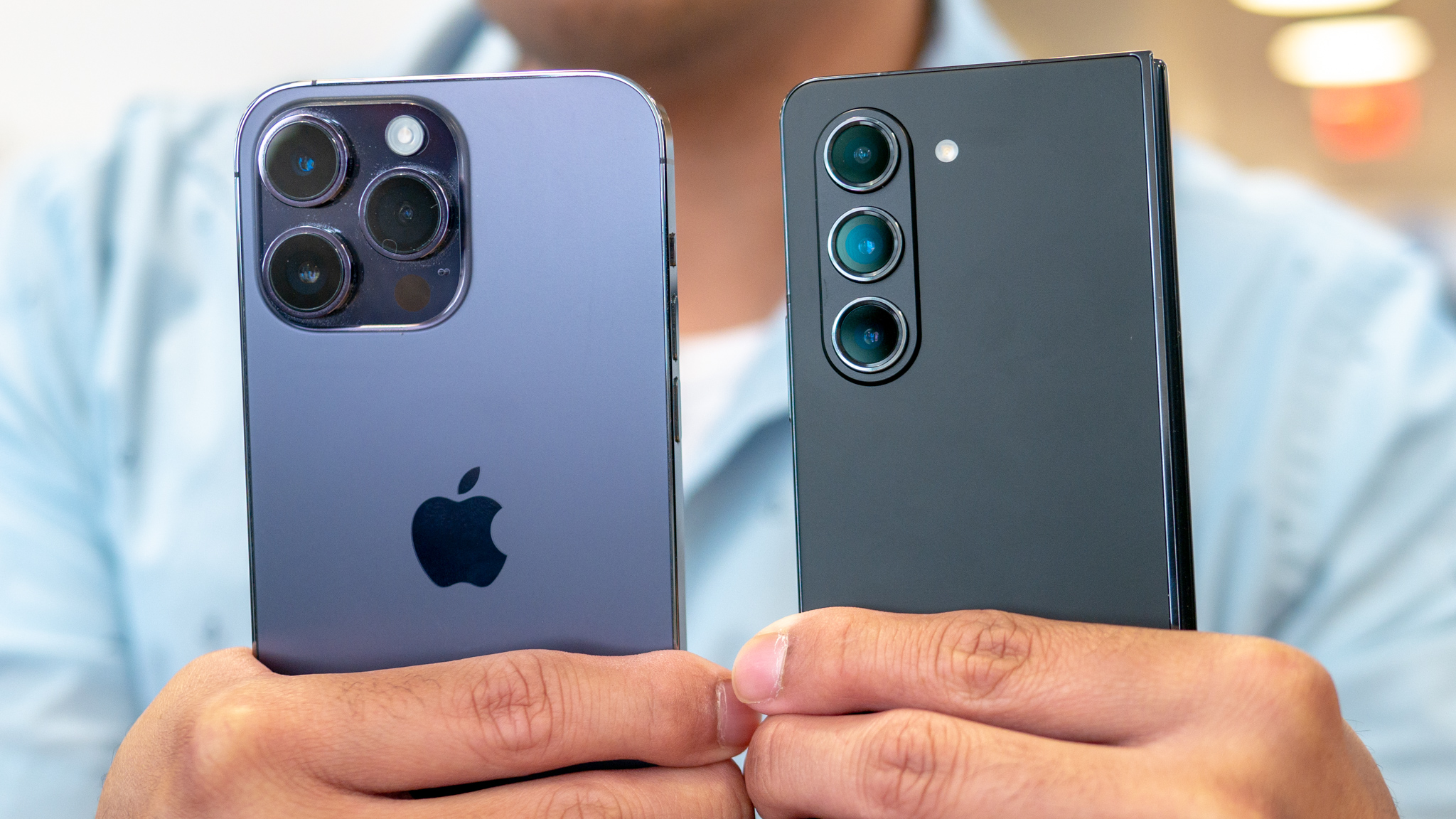
A Samsung Galaxy Z Fold 5 vs. iPhone 14 Pro Max camera face-off gives us the chance to see how Samsung's latest phone measures up to one of the best camera phones. And the results are looking good for Samsung.
That may be surprising since a lot of the camera rumors surrounding the Samsung Galaxy Z Fold 5 didn't pan out. (The even longer telephoto camera that had been rumored is a no-show on the phone, for example.) Instead, we’re greeted by a very familiar triple camera system on the Fold.
Many people often default to the specs in order to discern which camera phone is better. But that’s not a way to find the better shooter, as we’ve seen in past camera face-offs we’ve conducted. Instead, real world camera samples help gauge which camera phone is tops.
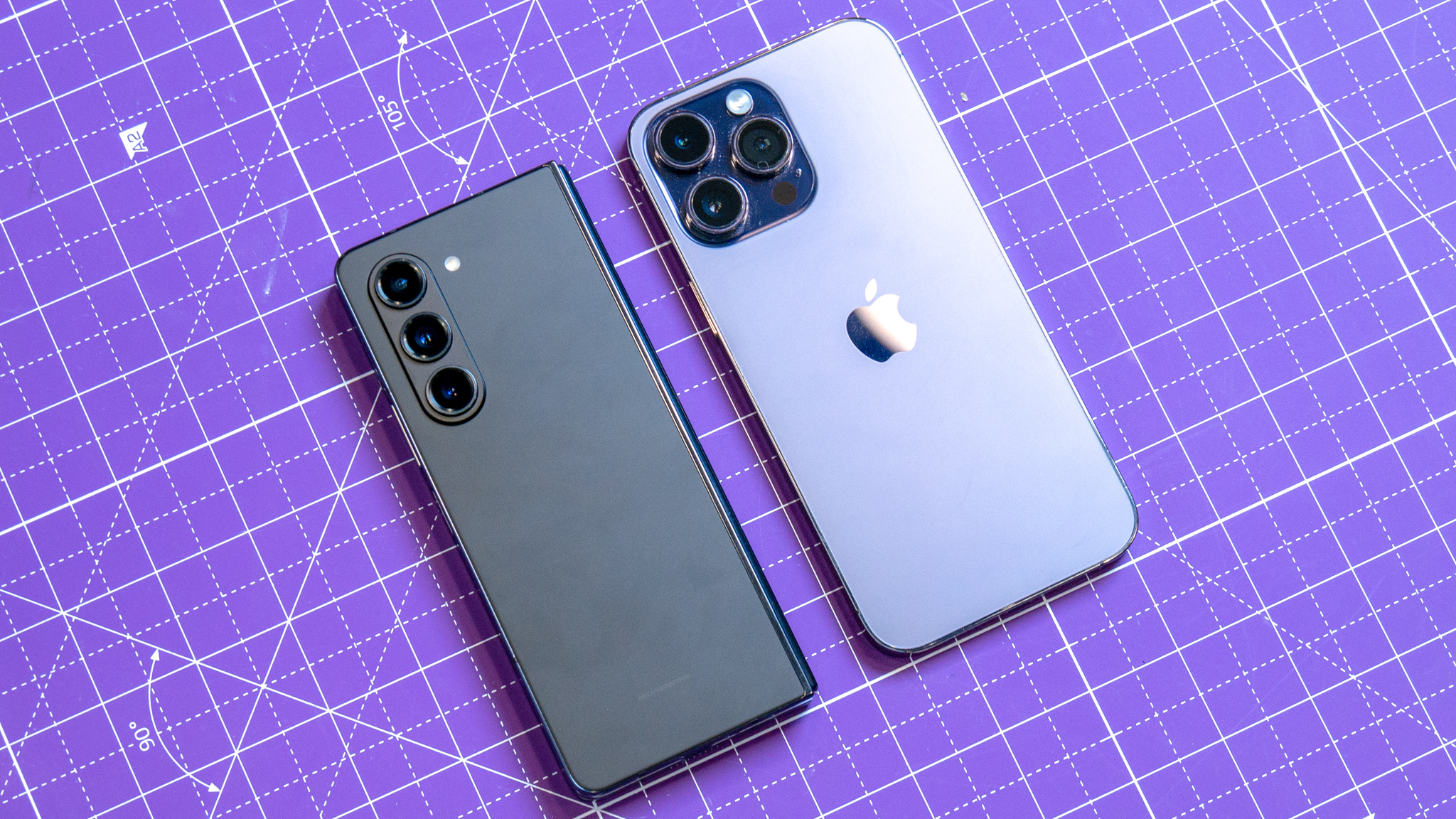
The Samsung Galaxy Z Fold 5 features a 50MP main camera, 12MP ultrawide lens with a 123-degree field of view, and a 10-megapixel telephoto sensor that has a 3x optical zoom. Meanwhile, the iPhone 14 Pro Max is packing a 48-megapixel main camera, 12-megapixel ultrawide with a 120-degree FOV, and a 12-megapixel telephoto with 3x optical zoom.
It looks like a very even match between these two juggernauts, but we will say that enthusiasts will prefer the utility of Samsung's foldable after checking out our Galaxy Z Fold 5 hands-on. Specifically, you'll like using the better rear cameras for selfies with its dual preview mode, along with the Fold's manual controls for photos and videos.
Samsung Galaxy Z Fold 5 vs. iPhone 14 Pro Max: Main camera
Looking at the entire photo, we can see how the Galaxy Z Fold 5’s main camera offers a wider dynamic range than the iPhone 14 Pro Max. It’s especially noticeable in the shadows, where the Fold seems to boost the exposure to draw out details, evident in the trees in the far background.
Details are plentiful with both shots, but colors are a smidgen more vibrant with the Galaxy Z Fold 5.
Winner: Samsung Galaxy Z Fold 5
Samsung Galaxy Z Fold 5 vs. iPhone 14 Pro Max: Ultrawide camera
Based on the numbers, it would be a clear win for the Galaxy Z Fold 5’s ultrawide camera because of its 123-degree field of view (FOV) . The iPhone 14 Pro Max offers a slightly more limited 120-degree FOV. However, as we stood in the same spot to snap the photo, it appears as though both phones cover the same range.
Despite this, we’re giving the win to Samsung’s foldable because of its better dynamic range. You can see how the shadows are boosted with the trees in the far background. We also notice the Fold's picture is slightly sharper.
Winner: Samsung Galaxy Z Fold 5
Samsung Galaxy Z Fold 5 vs. iPhone 14 Pro Max: Telephoto camera
Interestingly, the iPhone 14 Pro Max’s telephoto lens proves to be the better shooter, but only by a small margin. We were able to get almost similar results with the two phones, but we can better make out the details in some of the plants around the fountain with the iPhone 14 Pro Max’s shot.
Don’t get us wrong — the Z Fold 5’s telephoto camera does nicely to capture the scene, but the image is accompanied by slightly softer details in the same areas.
Winner: Apple iPhone 14 Pro Max
Samsung Galaxy Z Fold 5 vs. iPhone 14 Pro Max: Portrait mode
This one’s a bit trickier to compare, mainly because both phones handle portrait mode differently. We stuck to shooting in portrait mode with each phone's main cameras, but you have the ability to adjust the intensity of portrait mode to your preference.
With what we captured, however, it’s a tough call because there are pros and cons with both images. For starters, the Z Fold 5 has the more natural look with an even exposure throughout the shot. Meanwhile, the iPhone 14 Pro Max draws out details better, which you can see in the wrinkles in the shirt above. Either one could be the winner depending on your preference.
Winner: Draw
Samsung Galaxy Z Fold 5 vs. iPhone 14 Pro Max: Low light
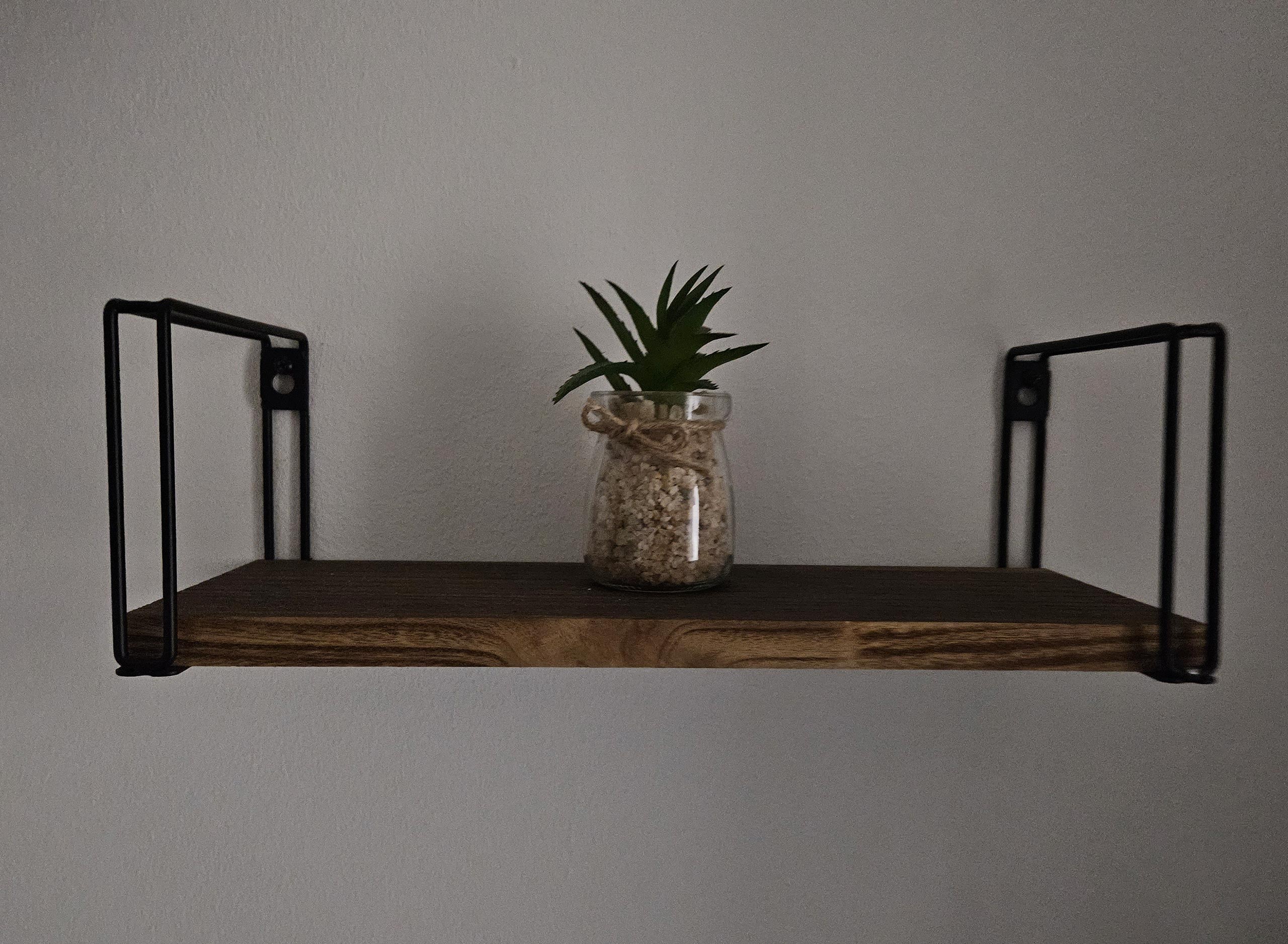
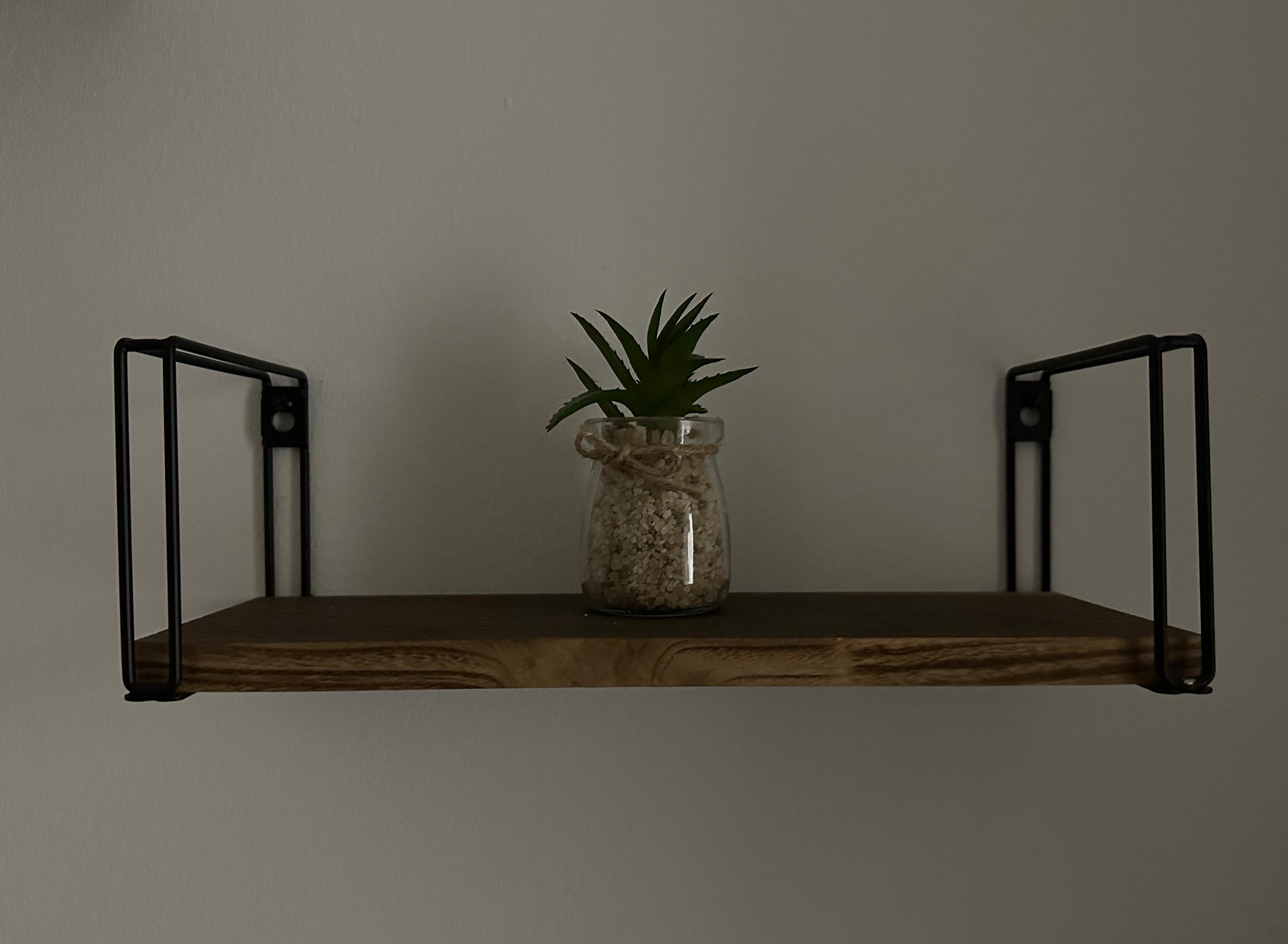
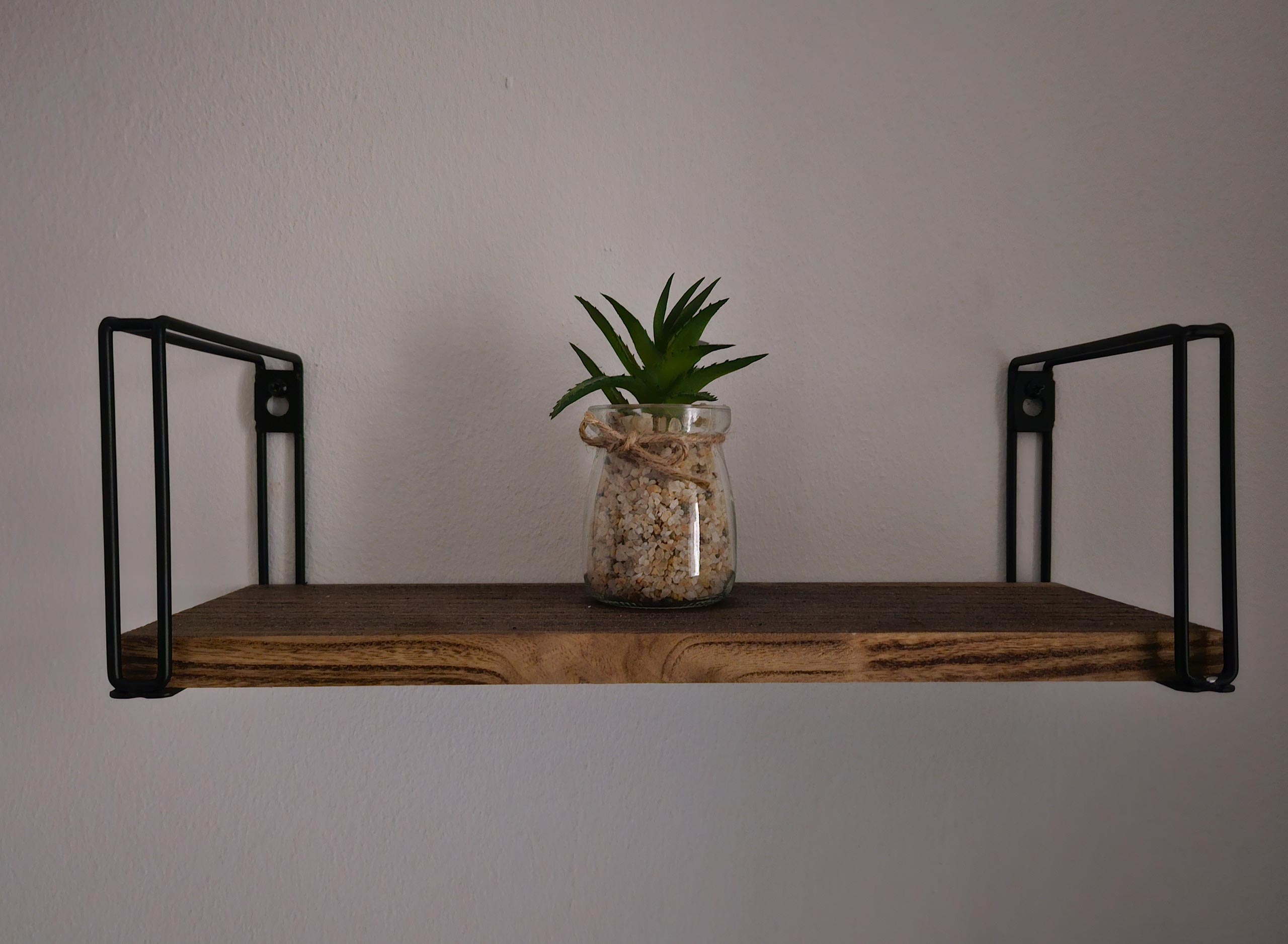
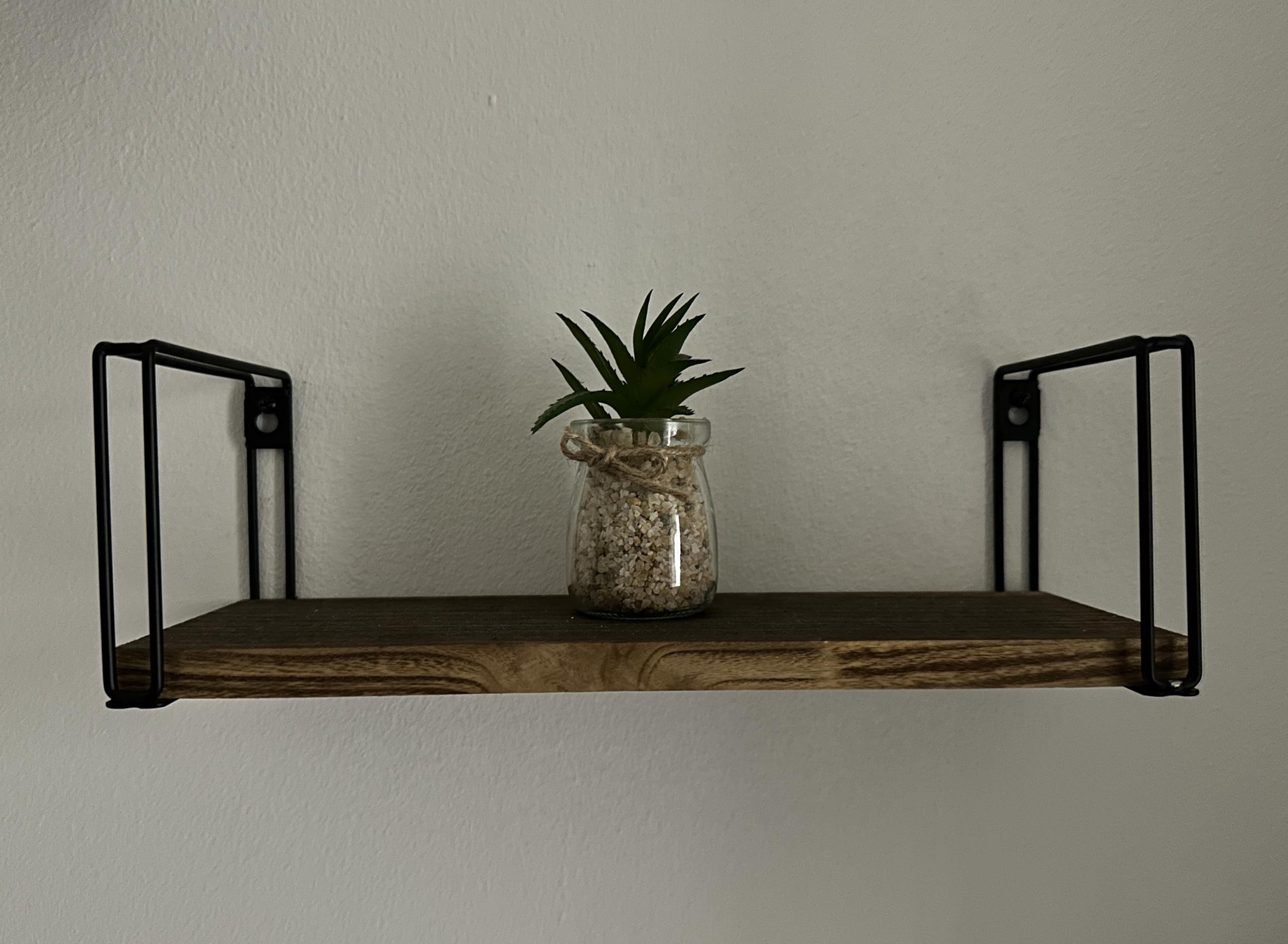
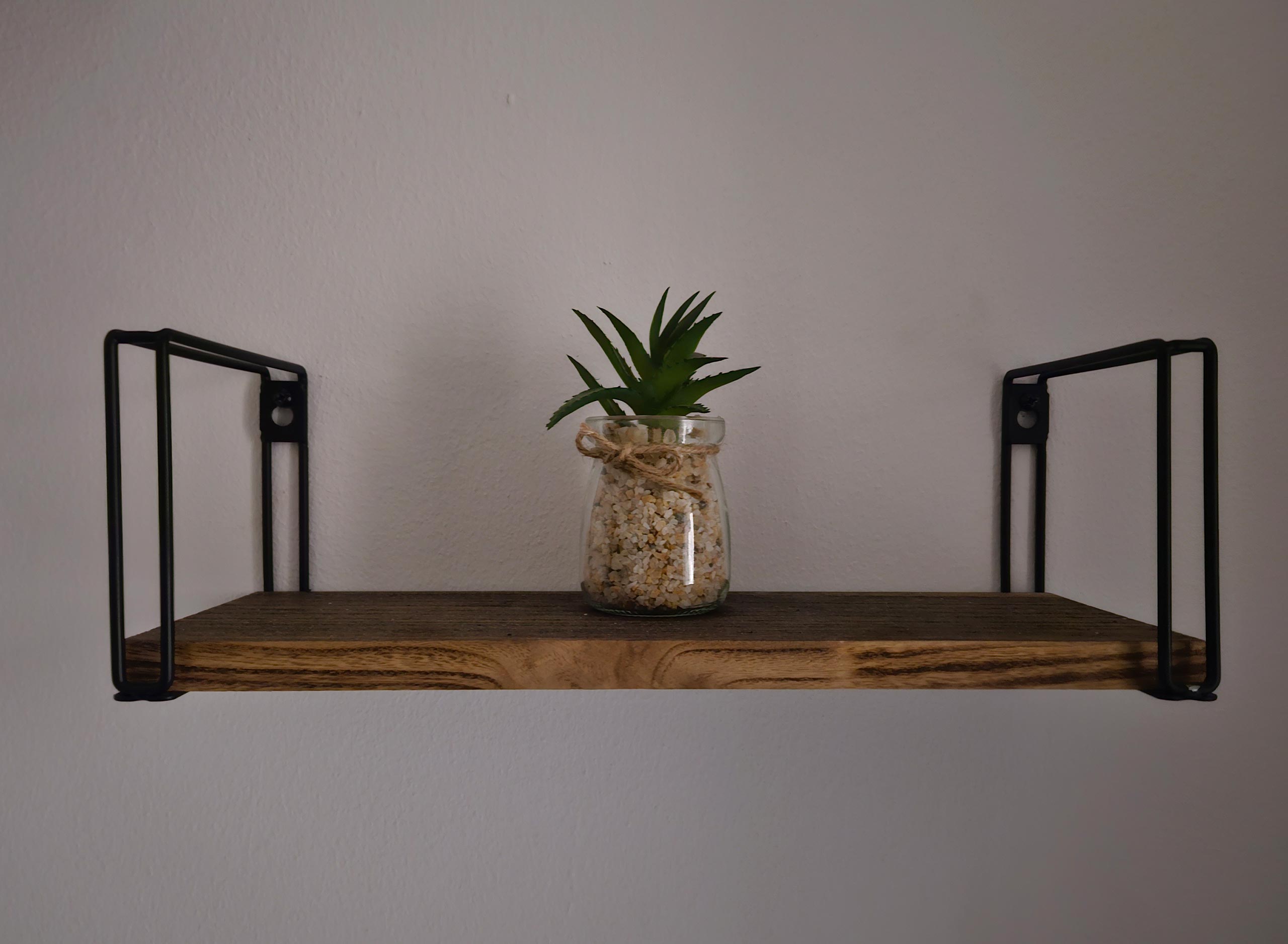
A phone’s ability to take exceptional photos mainly depends on how it handles low light conditions. Let’s face it — almost every camera can take decent shots when it’s sunny out.
Without leaning on the night modes of either device, the Galaxy Z Fold 5’s low light shot is the better result. It’s slightly on the grainier side when we zoom in, but we prefer the full image to the iPhone 14 Pro Max’s softened production. The iPhone photo looks almost like someone applied the magic softening tool to the entire shot.
Switching over to night mode, we easily prefer the Galaxy Z Fold 5 because it does better at boosting the exposure in the shadows. It’s most visible in plant leaves, where we can make out sharper edges and green color. In comparison, the iPhone 14 Pro Max’s night mode loses those details.
Winner: Samsung Galaxy Z Fold 5
Samsung Galaxy Z Fold 5 vs. iPhone 14 Pro Max: Front camera
Since there are technically two front cameras on the Galaxy Z Fold 5 — one on the cover display, the other on underneath the main panel — we opted to stick with the 10MP cover display camera. That's probably going to help out the Galaxy Z Fold 5 in this category since the under-display camera has disappointed on previous mdels.
The Apple iPhone 14 Pro Max’s 12MP TrueDepth camera pulls off some amazing results, but we still like the Galaxy Z Fold 5 shot a little more. That’s because it’s a bit more sharper when you dial into the shot, along with the warmer color tones it produces. Still, the iPhone 14 Pro Max is capable of taking excellent selfies.
Winner: Samsung Galaxy Z Fold 5
Samsung Galaxy Z Fold 5 vs. iPhone 14 Pro Max: Video recording
Yet again, the determining factor here boils down to the excellent dynamic range of the Samsung Galaxy Z Fold 5. Details are pleasant and plentiful with the 4K 30FPS videos we shot of the same scene with both phones. However, the wider dynamic range performance of the Galaxy Z Fold 5 doesn’t overexpose the clouds in the sky as much as the iPhone 14 Pro Max — all while producing the punchier color tones to draw us in.
Winner: Samsung Galaxy Z Fold 5
Samsung Galaxy Z Fold 5 vs. iPhone 14 Pro Max: Verdict
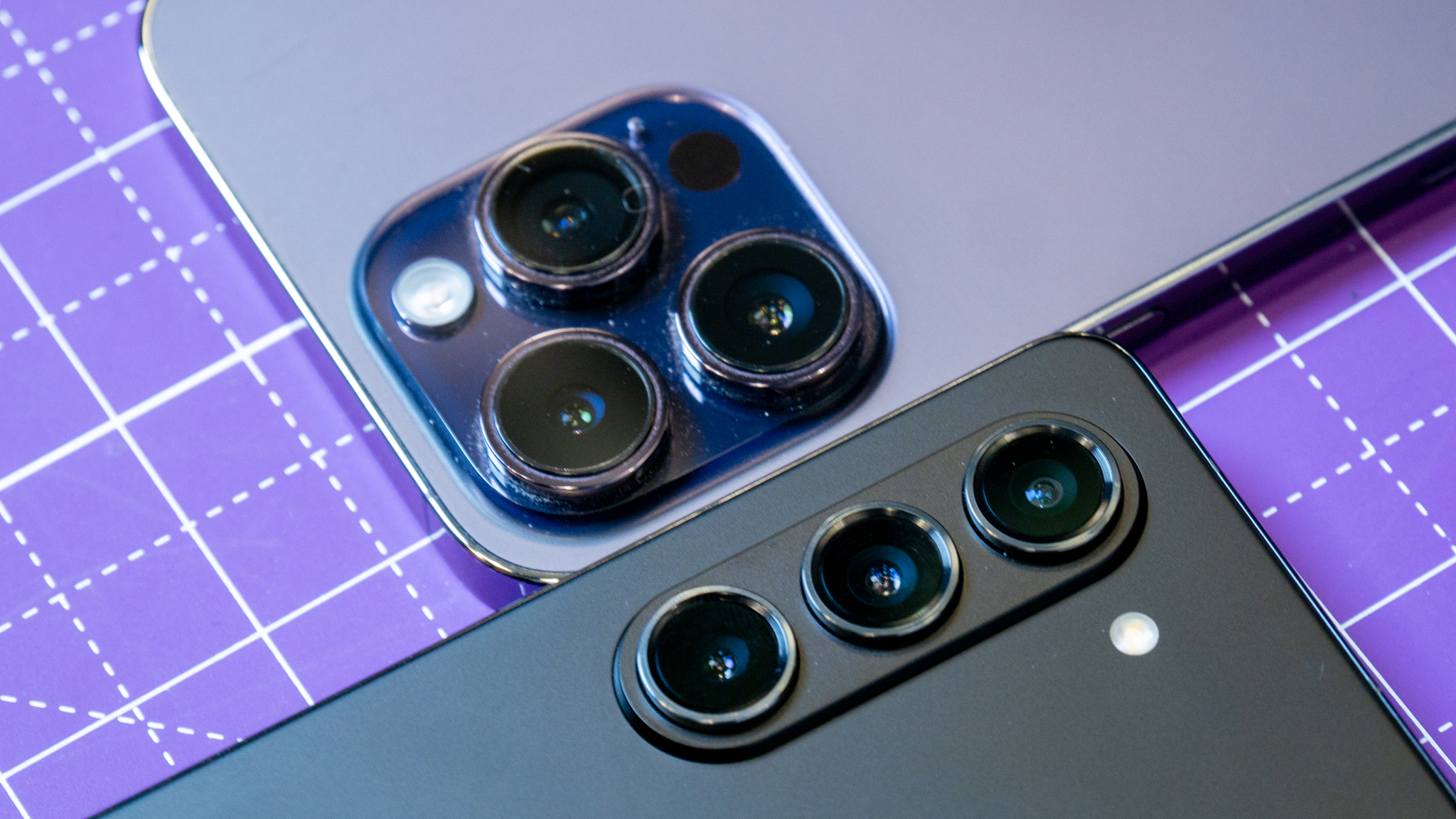
Based on our Samsung Galaxy Z Fold 5 and Apple iPhone 14 Pro Max camera faceoff, it’s hard to overlook the superior dynamic range performance of Samsung’s new foldable. It worked wonders in both bright and low light conditions, drawing out details that are otherwise lost in the shadows. Even though it seems like Samsung didn’t change up the hardware over its previous foldable, these results prove how the image processing can help enhance the results.







